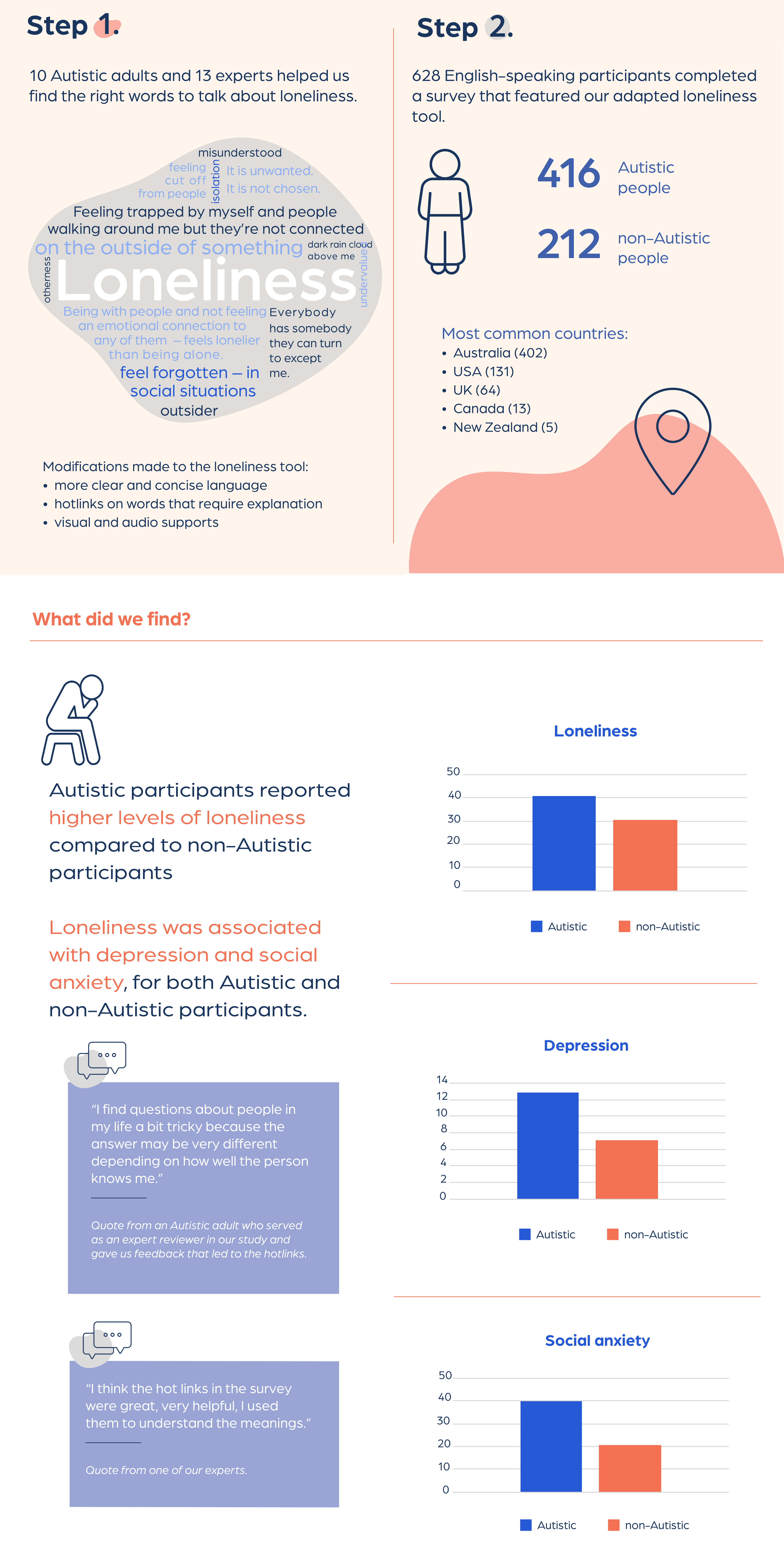Why
Loneliness is the feeling of being alone or isolated, even when you're surrounded by people. It's a sense of not having the connection or companionship you desire.
Research tells us that loneliness could become an international health crisis, with wide spreading negative impacts on physical and mental health and the economy. While most people may experience loneliness throughout their lifetime, emerging research shows that Autistic adults may experience higher levels of loneliness than non-Autistic people.
How can we measure loneliness of Autistic people? Do we measure it in the same way as we do for non-Autistic people? What influences loneliness in Autistic adults? What recommendations should be made to support services, therapists, parents and caregivers to support Autistic adults in reducing their loneliness levels?
The research
In collaboration with an international team of researchers, we explored the concept of loneliness for Autistic people by improving a tool used to measure loneliness. We then asked participants to complete a survey that featured our adapted loneliness tool.

Media
There was media interest in this research during Loneliness Awareness Week 2024.
- ABC News Radio: interview (5 Augusts 2024)
- ABC Radio Hobart: interview on Hobart Drive (7 August 2024)
- SBS News: Headlines on Health (at 4 minute mark) (11 August 2024)
Submission
- Aspect's submission to the NSW Parliament Inquiry into the prevalence, causes and impacts of loneliness (18 September 2024)
Making a difference
Before this study, there was no reliable tool specifically for measuring loneliness in Autistic adults. Our findings validate a new measurement tool that will help future research and support services better understand and assist Autistic adults struggling with loneliness.
Improving accessibility
The modifications we made to the tool have:
- enhanced the accessibility of the scale for everyone
- improved understanding and usability, leading to more accurate and reliable data
- broadened its applicability, making it useful in various settings and aiding in developing interventions to reduce loneliness in different groups.
Ongoing development
Researchers must continually update measurement tools to ensure relevance and accuracy, questioning if existing scales can be improved for more reliable findings. Collaborating with people with lived experiences enhances research outcomes and prevents the use of outdated tools. This approach helps capture the nuances of diverse populations and improves the validity of research results.
Research team
Dr. Abbey Love, Lead Researcher, Aspect Research Centre for Autism Practice – ARCAP (Australia)
Dr. Vicki Gibbs, ARCAP (Australia)
Dr. Ru Ying Cai, ARCAP (Australia)
Dr. Chris Edwards, ARCAP (Australia)
Dr. Kana Grace, Autistic researcher (UK)
Prof. Michael Toland, University of Toledo (USA)
Dr. David Dueber, University of Toledo (USA)
Assoc. Prof. Michelle Lim, Ending Loneliness Together (Australia)

Started
2023
Ends
2024
Funding
Aspect
Ethics approval
GU Ref No: 2023/363

